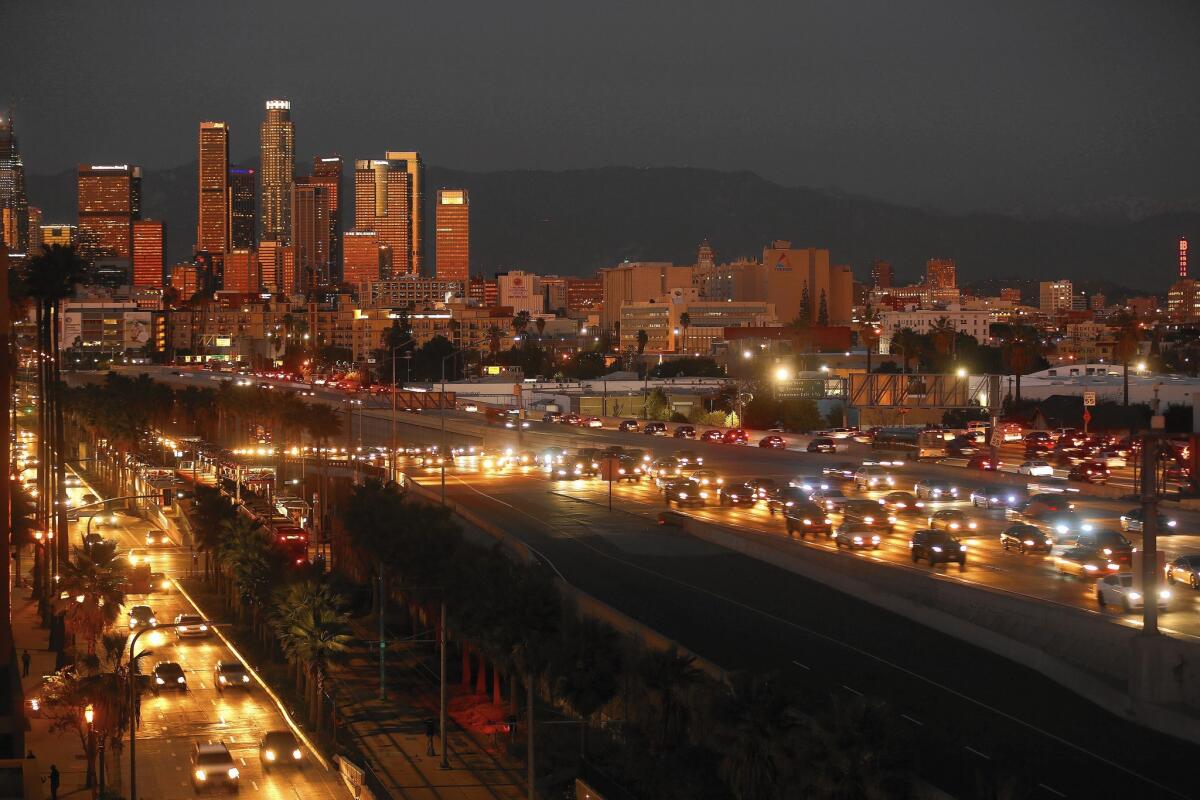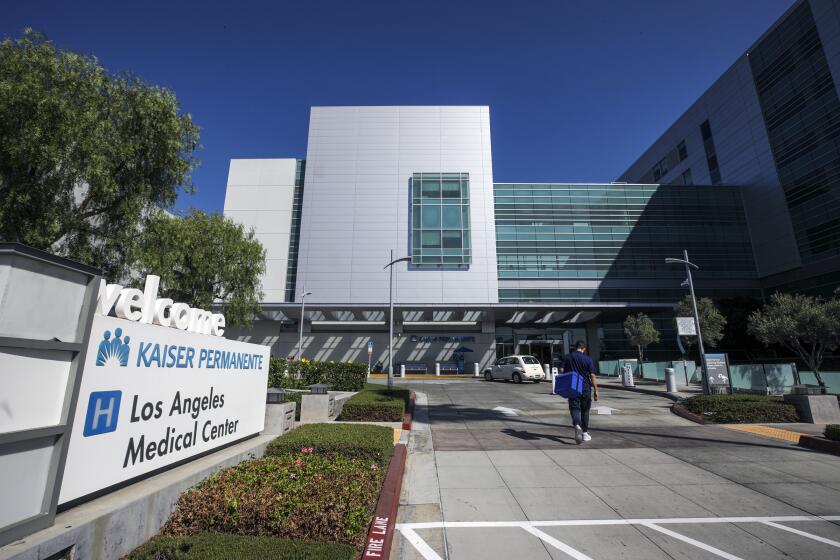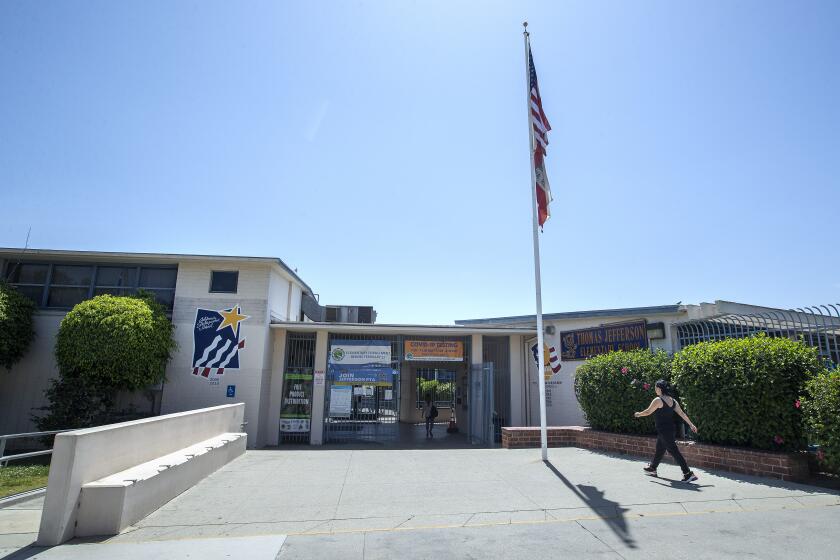Many L.A. County residents worry about going hungry or becoming homeless, survey finds

Los Angeles County residents feel generally lukewarm about their quality of life, and nearly one-third of them live with anxiety about going hungry or becoming homeless, a new UCLA survey found.
Among some groups, including Latinos, renters and people making less than $30,000 a year, the percentages worrying about food and shelter were much higher.
The survey was commissioned by UCLA’s Luskin School of Public Affairs and conducted last month by phone and online in English and Spanish by public opinion research firm Fairbank, Maslin, Maullin, Metz & Associates. A total of 1,400 county residents were asked to rate their quality of life with respect to several issues, including public safety, healthcare, transportation, race relations and neighborhood quality. Economic conditions, including cost of living and jobs, got the lowest ratings overall, but there were stark differences among socioeconomic groups.
Zev Yaroslavsky, a retired longtime Los Angeles County supervisor who is now director of the Los Angeles Initiative at the school of public affairs, said the survey “reveals the clear differences by class, by economic standing, even more so than the racial divide.”
“Economic differences seem to be the fault line in our county,” Yaroslavsky said. “It really paints a picture of a Los Angeles that is two worlds.”
Overall, on a scale of 10 to 100, those surveyed rated their quality of life at 59, on average. The average score was 56 for people living in households making less than $30,000 a year and 66 for those making $120,000 to $150,000. The overall scores among racial groups ranged from 58 for Latinos to 62 for whites. The responses also varied by geography, with people living in central Los Angeles rating their overall quality of life 57, on average, while people living in Malibu rated it 64.
When asked to rate their satisfaction with different aspects of life in Los Angeles County, respondents gave the highest marks to their neighborhood quality, healthcare and relationships with different racial and ethnic groups. The categories of jobs, the economy and cost of living got the most negative marks — and were also rated by residents as the most important to them.
All groups reported being dissatisfied with the cost of housing in the county. But there was a wide variation in economic anxiety among different groups.
When asked if they had worried in the last few years about themselves or family members going hungry because of the cost of food, 49% of those making less than $30,000 a year said they had. Even among households making $60,000 to $90,000 a year, nearly a quarter of respondents said they had worried about hunger. Among those making more than $150,000, that number dropped to 6%.
When asked if they had worried about losing their homes and becoming homeless as a result, 54% of respondents making less than $30,000 and 30% of those making $60,000 to $90,000 said they had. That dropped to 5% for those making $120,000 to $150,000 a year, although 9% of respondents living in households making more than $150,000 said they had feared becoming homeless.
Among racial groups, Latinos were by far the most likely to worry about hunger, with 44% of respondents saying it had been a concern, compared with 10% of white respondents and 18% of Asians and African Americans.
Yaroslavsky said he hoped policymakers will take note of the degree of economic insecurity residents are feeling.
“Clearly the number of people who feel that they’re on the edge has to be taken into account,” he said. “It may put more urgency on the collective efforts the city and county are now pursuing on homelessness.”
Residents gave an overall satisfaction rating of 76 to their own relations with different racial and ethnic groups — ranging from an average of 74 for Asians to 78 for whites, with Latino and black residents falling in between.
The satisfaction level varied more among racial groups when asked to rate their interactions with law enforcement, which whites rated at 79, on average, while African Americans gave an average rating of 65.
This year marked the first time UCLA has completed the quality-of-life survey, which is intended to become an annual undertaking.
Twitter: @sewella
More to Read
Start your day right
Sign up for Essential California for news, features and recommendations from the L.A. Times and beyond in your inbox six days a week.
You may occasionally receive promotional content from the Los Angeles Times.







